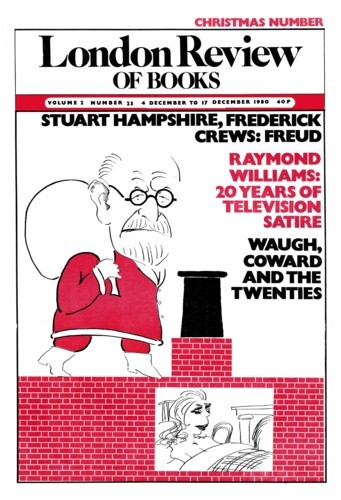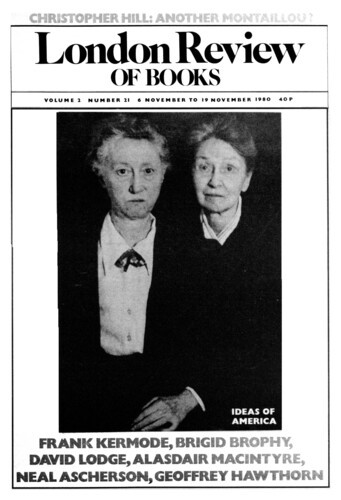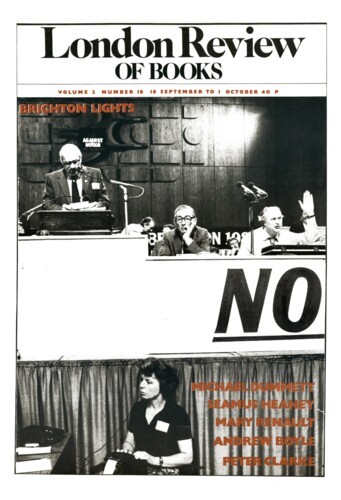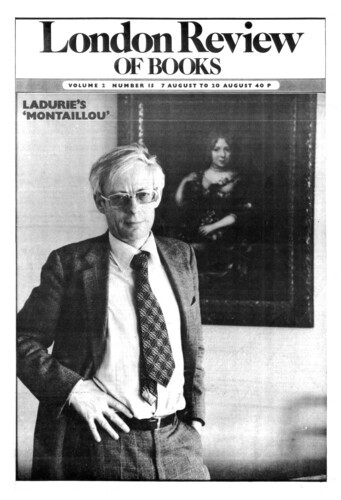The Rise of Richard Adams
Graham Hough, 4 December 1980
The remarkable literary career of Richard Adams began only eight years ago, but it has already reached substantial dimensions. Watership Down in 1972 was followed by two other works of mystery and imagination, relying more or less heavily on the animal world, and now by The Girl in a Swing, which is ostensibly about human beings. These are not the skimpy, slimmed-down fictions so general today, but highly-worked, close-packed narratives, each of four hundred pages or more. Add to these two or three nature books and a recent collection of folk-tales, and we have what for many writers would constitute a life’s work. Not only is Mr Adams immensely prolific, he can carry an audience with him: Watership Down had an immense readership and the reviews of the next two books were uniformly ecstatic.





